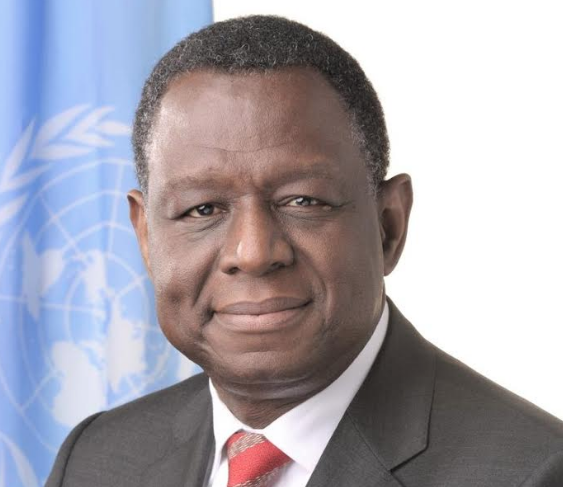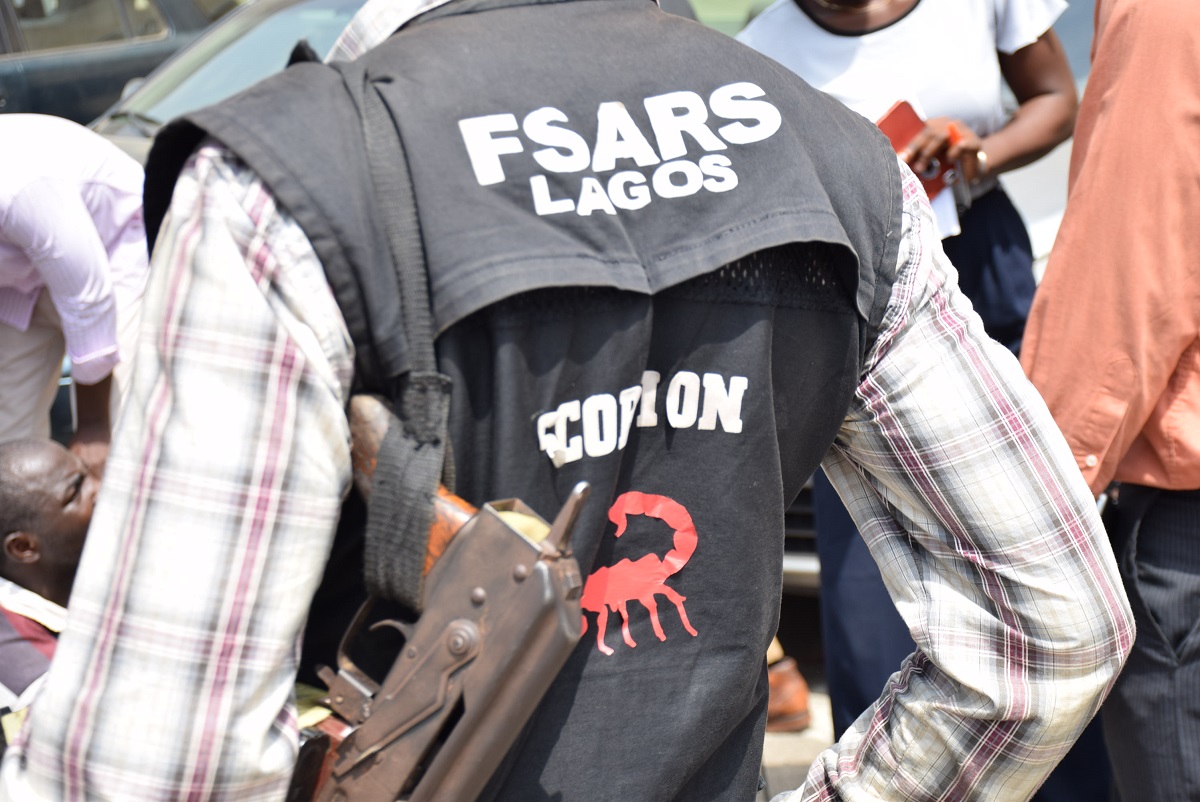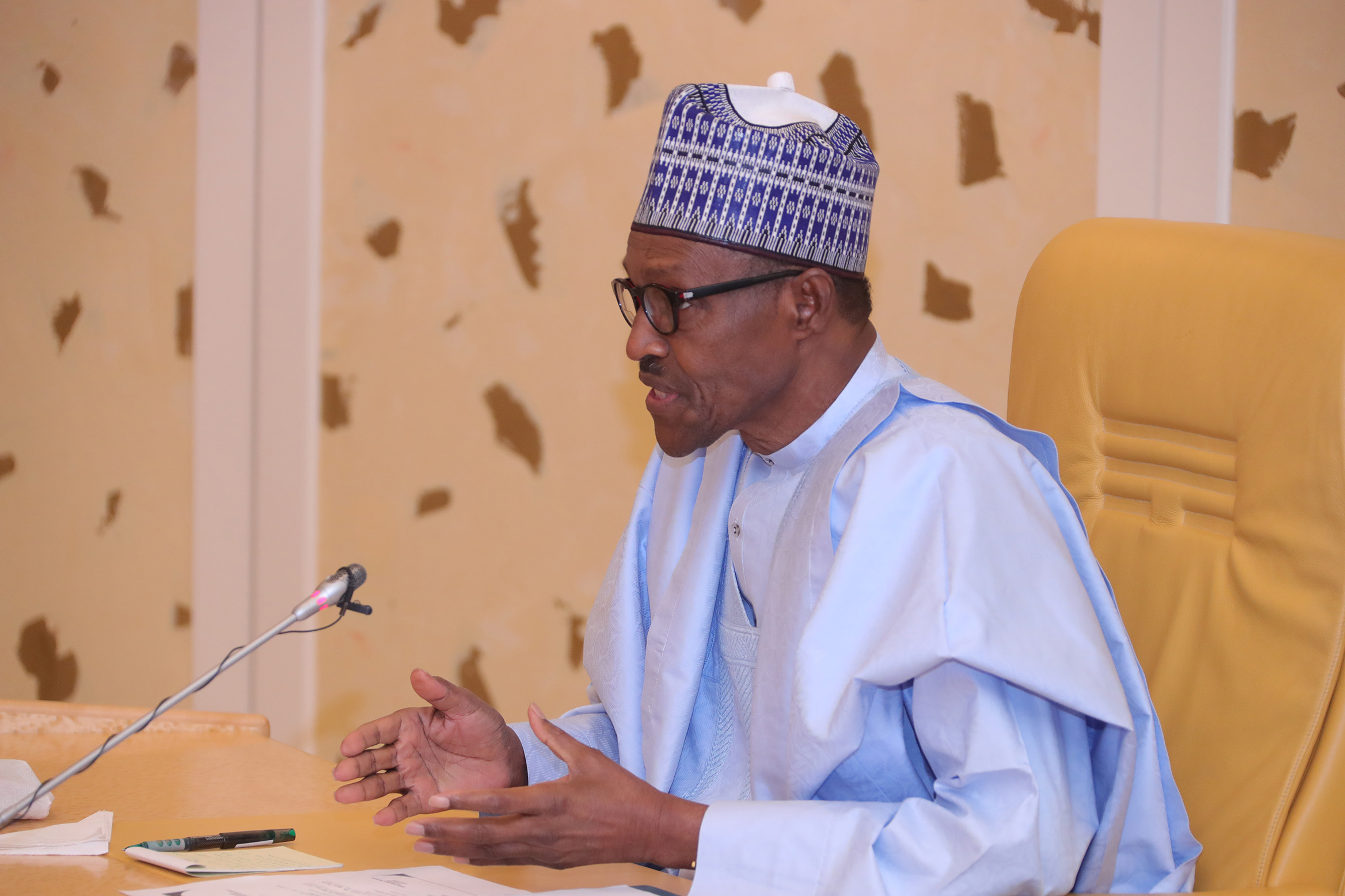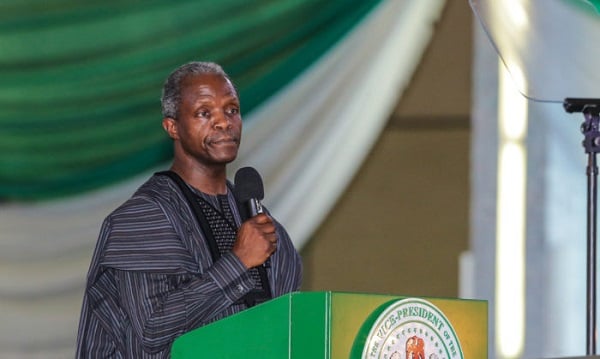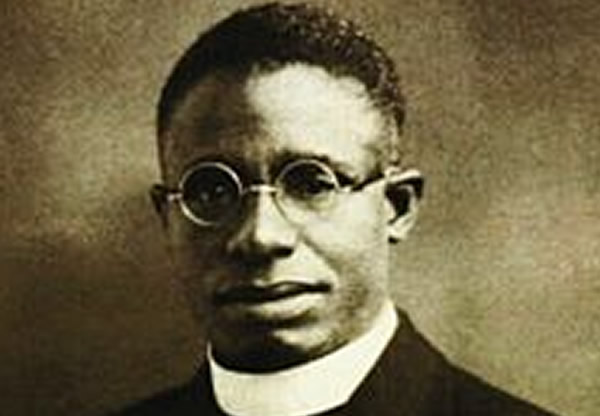BY NIYI OJUOLAPE
It was 11pm on the night of Sunday, 4th June, 2017. My phone rang, and a cursory look at the name of the caller aroused my curiosity. Dr. Babajide Osotimehin, my Boss’ first son is by every standard not a frivolous person and would most likely not call except it is important. I had been on the phone with Prof, back and forth for about five times until about three hours before that fateful call came. I was a little worried, but I never in the least suspected the message that was about to hit me. Jide said: ‘We have a problem o’, to which I responded ‘No problem Jide. What is it about?’
After heaving a huge sigh, he said ‘It is Prof’. ‘What about Prof?’ I quipped, before he delivered the final coup. ‘Prof has passed,’ he said. The message struck me like a thunderbolt. I never had any inkling nor was in any way prepared for this eventuality. As usual, I and Prof. Osotimehin had been in touch all through the weekend after seeing him off to his car late on Friday evening when he left the office.
Our Executive Board would be starting on Monday, and we had put finishing touches to his Statement and other items of preparations for the Board. Beyond the Board, there was a trip planned to meet with some of our Donors the following week, and we were also preparing for the questions they will be asking with regards to our organisation’s agenda and our preparedness to scale up the life-saving work that we do. These were the issues occupying the minds of Prof and myself, and nothing about the jarring eventualities that we were now confronted with.
I remember asking Jide to pull himself together, as I promptly made my way to Prof’s residence. He thanked me and hung up. On my way to Prof’s house, I continued beyond the dictates of rationalism to assure myself that perhaps Prof was not really dead. Prof cannot die. He is far too strong for that.
Advertisement
On getting to the house an hour later, there was an ambulance and one or two police vehicles, with 911 personnel huddling about the entrance door. I trembled. My feet cleaved a little too firm to the ground, my heart began to jump, as I began to feel an overwhelming sense of panic. Alas, my worst fears were confirmed. Prof had indeed passed away. I saw him, and found myself asking: How can you just leave like us like this?
When Professor Babatunde Osotimehin passed away in the evening of June 4, 2017, he was 68. His extraordinary accomplishments and impact on this planet however seemed like what it would have taken 168 years to garner. Many knew him differently and variously as a Health practitioner, Academic, Humanitarian, Teacher, Administrator and Manager.
He was however much more than that; Prof was an astute diplomat and at the same time, a revolutionary of sorts. At the time of his death, he was the Executive Director of the United Nations Population Fund (UNFPA), a position he held in the organisation for six and a half years, and in which he remarkably excelled at.
Advertisement
Prof. Osotimehin wasn’t just my boss, he was a man I had come to call Father. Sixteen years ago, our paths crossed in the most unlikely of ways, changing the entire trajectory of my life. I remember in Abuja that day, my Uncles; Prof. Layi Erinosho and Prof. Femi Odekunle informed me that one of their Professor colleagues was coming into town, and I must accompany them to show him around our town. Prof. Babatunde Osotimehin had just arrived to manage the World Bank HIV/AIDS programme for Nigeria. Following that encounter with him, he took a certain liking to me, and it wasn’t long before he hired me. From that point on, we were inseparable.
As the days progressed into years, our relationship evolved and grew, exceeding the artificial confines of an employer-employee relationship, into a father to son template, and ultimately into a buddy to buddy relationship. He would guide, comfort, counsel, advise, and encourage me in whatever ways possible, and I too, in some small measure did same to him.
As his vision for his personal and professional goals became clearer and grander in scale, I also became a close confidante and counsellor to him. Naturally the more I learnt about his concerns, hopes and dreams, the more I felt and assumed I had to be at my best to help him achieve his many objectives. That much at least, he expected of me, for I had never seen a man as focused and as obsessed with excellence as Prof Osotimehin.
This was why seeing him being moved away by an ambulance that fateful night felt as though an iron curtain had come down and my visions about the future had hurtled to an abrupt pause. That night, lost in thought, I had continued to stare at the dark heaven, unable to imagine that he was no longer going to be with us. Nothing could have prepared me for a night like that. In my estimation, Prof. simply had no business with death; certainly not at that stage of his life, when the world needed men like him the most.
Advertisement
One year on, these thoughts flash across my mind with the same intensity, only this time, with a lesser sense of dread and anxiety. I am left asking myself: Niyi, what would Prof have wanted you to do? And I respond: To fear not, and gallantly proceed with the job at hand in the most dedicated fashion.
It is impossible not to recall him as a thoroughbred professional and humanist, who cared deeply about others, no matter where they were from. A sage whose deepest reflections were anchored on developing all possible strategies to combat human suffering in a world of myriad strife and conflict. Empathy for the most vulnerable of society was his biggest driving force, and towards this end, he exuded impeccable dedication.
Osotimehin’s loss wasn’t just mine or that of his wife and children. It was a global blow. Understandably so, because he didn’t live for himself alone. He lived for all those undergoing unspeakable human sufferings across the world. He lived for the sake of the displaced and starving children in North East Nigeria and the Lake Chad Region, he lived for the refugees who are forced to flee their homes; he lived for the South Sudanese families whose lives have been ravaged by strife. He lived for people, world over, who needed refuge, succour, and an opportunity to rebuild their lives.
One year after his passing, I remember Prof as a dream professional everyone would be happy to work with and learn from. Today, as I coordinate the affairs of UNFPA Country Office in Ghana, I am even more grateful for having come under his tutelage and for all the important lessons I gathered as a proud protégé.
Advertisement
Having occupied a ringside seat in the last 15 years of his life, I remember Prof. for so many things; his aura, graceful mien, confidence, courage, grace, finesse, panache, power, erudition, wisdom, intellect, knowledge, and exceptional brilliance among others which, without any exaggeration, could light up the darkest of rooms. I remember how precise he was in unpacking even the most complex problems and choosing the most desirable strategies for addressing them.
As the Executive Director of UNFPA, he had looked at the problems of much of the developing world (which bordered mainly on political instability, internal strife, refugee crisis, dislocation, and disempowerment of girl children and young people) and identified the idea of “demographic dividend” as the overarching strategy needed to overcome these problems. This would go on to become one of his most defining legacies.
Advertisement
Developing countries were to adopt the idea of demographic dividends which involved a resolute pursuit of family planning, girl child and young people’s empowerment, and also sexual and reproductive health. By so doing, these countries would be able to raise a population of more productive individuals than dependents, hence making social or political instabilities a distant reality.
One year ago, it seemed to me that death denied him the opportunity to stay around long enough to see the practical manifestations of the policies he helped conceive and the agendas he so dutifully shaped. Today, I realise that he had set the ball rolling in a way that makes all his great works irreversible. He had a knack for not only identifying the best talents, but in energising the most demotivated minds into action. He worked with an urgency that was infectious. For Prof, one must never wait for tomorrow what they could execute today. This sense of direction, urgency, and dedication is my lasting impression of him.
Advertisement
Words are simply not enough to capture the colossus that was Babatunde Osotimehin, or the depth of courage, empathy and commitment which he carried with him everywhere. But words are all that we have. Words are the only devices we can deploy to document this great life, lived, almost entirely, in service to humanity’s most vulnerable and marginalised people around the world.
Today, on this one year anniversary of his passing, I continue to keep in my prayers, his beloved wife who endured the absence of his physical company for long spells, as Prof gave everything to the world. It is especially hurting that it was not supposed to be long before Prof would retire peacefully to enjoy her warmth after many years of never taking a break or go on holiday. And then death came unannounced. For Prof, there was always one urgent service or the other to render to the world.
Advertisement
Professor Osotimehin lives on. He lives through the fire that is kindled in the heart of everyone that knew him and learnt from him. He lives through the painstaking effort every humanitarian around the world makes to achieve a better and safer world for the marginalised. He lives through all men of goodwill who are working daily to achieve a safer world for children, for young people, for women and especially, the disempowered girl child.
Ojuolape, the UNFPA Resident Representative in Ghana, writes from Accra.
Views expressed by contributors are strictly personal and not of TheCable.
Add a comment
